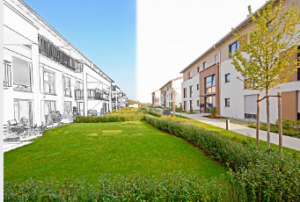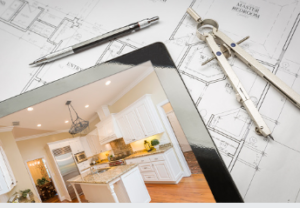Commercial property developers are responsible for purchasing, building and leasing commercial real estate. They often work closely with architects, engineers, contractors and other specialists to ensure projects are completed on schedule and correctly.
 Developers engage in community outreach as part of the development process to keep neighbours and communities up-to-date about the project and build community sentiment.
Developers engage in community outreach as part of the development process to keep neighbours and communities up-to-date about the project and build community sentiment.
Location
Commercial property developers and builders Adelaide are found in every corner of the globe, responsible for designing and building new or renovated buildings or selling existing commercial real estate properties. As vital links in commerce, they play an essential role in providing jobs while improving community life through increased business confidence. To be a successful property developer or builder, one must locate an optimal site, design an eye-catching building, and procure high-quality construction materials at reasonable costs. At the same time, they adhere to ethical business practices when selling properties they own or develop.
Design
Commercial property developers and builders Adelaide typically enlist architects and engineers as consultants when creating designs for buildings they construct. They must be reviewed by government agencies, utilities, and other entities for approval before construction can commence. Once all necessary permissions have been granted, construction can begin with a general contractor hired to implement designs according to specifications set out by both owner and architect.
Design of commercial buildings must prioritise Indoor Environmental Quality (IEQ), improving the comfort and productivity of its occupants while simultaneously reducing long-term operational costs through low-maintenance building systems that resist damage, last longer, and minimise repairs costs associated with future repairs.
Permits
Commercial property developers and builders who wish to begin construction must obtain multiple permits from the City before commencing, permitting them to start with work while permitting inspections to occur as necessary.
Permit requirements for commercial development projects depend on the specifics of each development project. For example, building permits are usually necessary when new buildings or additions create additional floor space. In contrast, renovations of existing structures by new tenants count as new construction and therefore require permits.
Construction plans are an integral component of the permitting process, outlining all details about a proposed building’s mechanical and electrical systems, finishes, walls, exteriors and more.
For example, some communities require conceptual plans, while others prefer more detailed specifications and elevations of how the building will sit on the site. Depending on your jurisdiction, programs may also need to be reviewed by an advisory committee before being submitted for approval from planning departments.
Commercial buildings typically require permits from multiple departments before receiving final approval for construction or renovation, including building permits, electrical, plumbing and fire sprinkler permits. In addition, the planning department must approve each permit before being issued.
Construction
Construction is the practice of creating buildings from their designs and is a highly complex industry. It relies heavily on architects, engineers, and contractors, with research conducted into material properties before assembling and testing equipment, as well as setting safety standards being part of daily practice.
Construction projects typically start with a design phase in which an owner hires a specialist to develop the brief and then agrees on budget and schedule parameters. Once plans have been approved, construction managers collaborate with various specialists (i.e. engineers or architects) in delivering projects on schedule and within budget.
Construction managers oversee all aspects of a project from its inception, liaising between architects and engineers to ensure that its design satisfies owner goals and managing schedules to ensure everyone knows how long tasks will take.
Once construction begins, commercial real estate developers and builders collaborate with their construction teams to manage Requests for Information (RFIs). Before signing primary contract documents, these requests are issued so contractors can clarify issues and better understand their obligations on-site.
Representing themselves, architects may also arrange weekly conference calls with general contractors to review progress reports and status reports to ensure all parties involved remain on the same page regarding budgets, schedules and the details of specific construction tasks.
Commercial construction can be extremely hazardous, with numerous health and safety risks, potentially leading to injuries or fatalities. Therefore, construction managers and workers must undergo full safety training.

 Adelaide custom home builders
Adelaide custom home builders